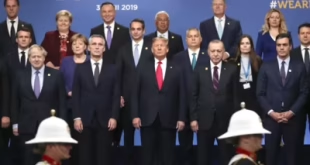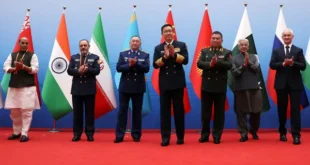- Over the course of November and December, a Constitution Bench of the Supreme Court of India heard a crucial case about the method by which the Election Commission of India (ECI) is constituted, and Election Commissioners appointed.
- At the time of writing, the Court has reserved its judgment, which is expected early in the new year.
- The issues before the Court are straightforward, but with far-reaching ramifications for Indian democracy: is complete executive control over appointments to the ECI constitutional? And if not, what manner of appointment is sufficient to preserve the independence of the ECI, and the fairness of elections
- According to the classical understanding of modern democracy, there are three “wings” of state: the legislature, the executive, and the judiciary.
- The task of the Constitution is to allocate powers between these three wings, and to ensure that there is an adequate degree of checks and balances between them. Traditionally, bodies that are involved with administrative and implementational issues — elections being among them — are believed to fall within the executive domain.
The erosion of a ‘classical understanding’
- However, in contemporary times, that understanding is no longer dominant. It is now commonly accepted that healthy constitutional democracies need what are known as “fourth branch institutions” (or, alternatively, “integrity institutions”).
- The reason why a “fourth branch” — in addition to the legislature, the executive, and the judiciary — needs to exist is the following: many of the basic rights and guarantees that we enjoy cannot be effective without an infrastructure of implementation.
- Let us take, for example, the right to information, a staple feature of most modern constitutional democracies.
- Without an infrastructure of implementation, the right to information will remain only a paper guarantee. We need, for example, an information commission, adequately staffed and funded, which will oversee the on-ground enforcement of the right to information, compel recalcitrant public institutions to release public information, adjudicate disputes, and so on.
- These tasks involve elements of the judicial function as well as the administrative function, and, therefore, cannot only be performed by the judiciary, but need bodies — such as commissions — to perform them on a daily basis.
- Now, it logically follows from the above that “fourth branch institutions” need to be functionally independent from the political executive.
- This is because they are the vehicles for implementing rights against the executive. Once again, think of the right to information: primarily, citizens will attempt to invoke this right to extract public documents from government departments, in the interests of transparency.
- Governments, therefore, have a direct interest in such cases, and as history has shown, governments are rarely willing to be transparent of their own accord.
- To be effective, therefore, an Information Commission needs to be thoroughly independent of the government, against which it will be obligated to enforce the constitutional right to information.
- This is not an abstract point: as we have seen in recent times, extensive government control over the Central Information Commission — including control over appointments — has led to it becoming a largely toothless and ineffective body, and the eventual frustration of the right to information.
Examples from overseas
- Thus, for example, the South African and Kenyan Constitutions have dedicated constitutional provisions for “fourth branch institutions” such as Human Rights Commissions, Election Commissions, and so on, calling these “integrity institutions”, and requiring them to be “independent.
- ” The appointments process for such bodies normally involves multiple stakeholders from different wings of the state.
- The Indian Constitution also provides for such similar fourth branch institutions. While the ECI is, obviously, an example, others include the Comptroller and Auditor General, and the Public Service Commission(s), and the National Commission for Scheduled Castes.
- The problem, however, is this: while the Constitution goes to some degree to protect the independence of fourth branch institutions while officials are in office (such as, for example, a high threshold on the removal of an Electoral Commissioner), the power of appointment lies exclusively with the executive (formally, the President of India acting on the aid and advice of the Council of Ministers).
- To put the point simply, the government decides who gets to be in charge of running fourth branch institutions.
- This is undoubtedly a problem. The link between the power of appointment to a body, and its control, is both intuitive and has been empirically established in multiple contexts.
- As the South African constitutional court correctly noted in one of its landmark judgments, true and functional independence is effectively impossible if the power to appoint rests entirely within a single individual, office, or entity.
- This, then, is the foundation of the ongoing dispute before the Supreme Court.
- Indeed, Indian constitutional history as well points to the problem. The collegium system for the appointment of judges — which has recently seen controversy again — arose as a response to executive abuse and attempts to control the judiciary, stemming from the constitutional text, which again gave to the President (i.e., the executive) the power to appoint judges.
- In the landmark Vineet Narain case, the Supreme Court likewise held that for the rule of law to prevail, the appointment of the CBI Director would have to be ratified by a three-member body that included the Prime Minister, the Leader of Opposition, and the Chief Justice of India.
- Thus, Indian constitutional history is no stranger to the perils of executive power over appointments to independent bodies, and the fashioning of remedies against that.
The appointments process
- What, then, should the Court do in the case before it. It is important to note that almost no constitutional democracy in the world allows the political executive sole power to staff a body as important to sustaining democracy as an Election Commission.
- Appointment processes involve the government, the Opposition, independent experts, and judicial experts, in a manner that no one centre of power has dominance, or a veto.
- The problem, however, is that an appointments process is difficult to create simply by judicial decree: it is something that needs political consensus, public deliberation, and, perhaps, a carefully crafted legislation.
- The Court, therefore, has its task cut out. It is obvious that the existing system where the executive has absolute power over appointments is unsatisfactory, has been historically problematic, and damages the rule of law.
- But the Court must be careful to avoid band aid or stop-gap solutions. One possible alternative is for the Court to hand down a suspended declaration of invalidity, i.e., a remedy where the Court puts into place certain interim guidelines, but leaves a more permanent, structural solution up to the legislature.
- It is for the Court to decide how best that might be achieved, but the guiding principles, at all times, must be functional and effective independence from the executive, from the moment of appointment to the retirement, and then beyond.
SOURCE: THE HINDU, THE ECONOMIC TIMES, PIB
 Chinmaya IAS Academy – Current Affairs Chinmaya IAS Academy – Current Affairs
Chinmaya IAS Academy – Current Affairs Chinmaya IAS Academy – Current Affairs



